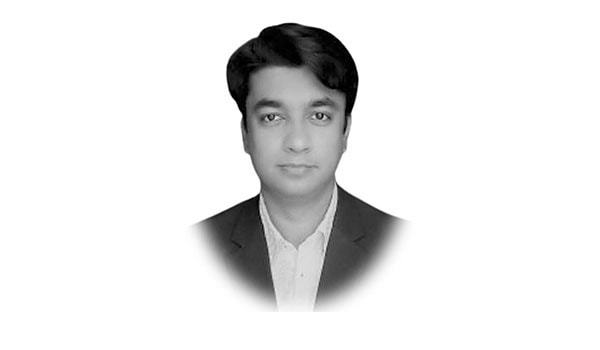The baleful influence of politics on economy
ONCE again our economy is in a shambles, we don’t have foreign reserves, the government is going to present a budget with the biggest deficit, and the rupee is losing ground against the US dollar on a daily basis.
Like always, we are facing these economic challenges because of the “previous government”.
Prime Minister Shehbaz and company have been excoriating ex-Prime Minister Imran Khan for planting economic mines for them, like delaying the increase in petroleum prices.
No press conference or media talk, in general, is complete without mentioning either how ineligible PTI’s administration was or the imported government.
These circumstances are moving the political and economic landscape on a disastrous ratchet.
It makes you feel that the economy should be separated from politics so that we can ensure economic decisions are not based on popular opinion.
They are not the means of political point-scoring, but can we do that?After all, politics affects the economy and the economy affects politics.
Political stability and economic growth are directly proportional to each other. An unstable political system will result in an ineffective economic output.
Similarly, a poor economic output will trigger unrest that might result in the government’s collapse.
Either way, that will put pressure on the government to come up with economic reforms and subsidies at a time when the country lacks fresh investment.
The relationship between investment and economic growth is as analogous to that of blood with our body.
Right now, our import cover has contracted, banks are avoiding unnecessary import payments and curtailed like Airlift, SWVL and Careem have either suspended their services or have contained their operations.
Many businesses will face a difficult time handling their operational cost given the current fuel prices and the inflationary pressure following that.
It will have a ripple effect on employment. Naturally, rising unemployment will deteriorate the law and order situation in the country.
According to the State Bank of Pakistan, the economic policy uncertainty index (EPU) rose to 314.77 in April from 99.06 in Feb of the same year.
During the recent visit of our Prime Minister Shehbaz Sharif to Saudi Arabia, Muhammad Bin Salman tied the financial assistance with the IMF program.
He said that he is willing to invest in Pakistan but Islamabad should focus on reforms that could decrease its financial dependency.
The reason friendly countries have turned down financial support is ostensibly due to political instability and the inability to implement farsighted economic policies.
Every policy creates winners and losers but a policy that is good for the country should be good for all compatriots.
In politics admitting that your policy was ineffective or couldn’t bear fruits for any given uncertain variables is no different from suicide.
That is why you will always see politicians defending their policies. Although it is possible that two economists see a policy from a different points of view and may agree or disagree according to their analysis.
But instead of coming up with a counter-strategy when the first one turns out to be a disaster, they stick to it.
Fearing a public backlash the so-called “cure” turns out to be worse than the disease.
Our economy is consumption-based, and to avoid going to monetary institutions, we should have focused on increasing our income streams and slowly discouraging luxury items rather than banning them overnight triggering panic.
What makes sense to an economist can be unpopular and politicians as decision-makers might not opt for that.
In taking economic decisions, they need to protect the interest of elites & leave something for the selectorates as well.
These elites are a group of people that matters to them because they play a decisive role during elections.
They are always among the winners, the denouement of which has resulted in the perennial distrust among the masses for politicians making economic decisions.
The reality is that economics is intricately interwoven with politics, therefore both of them cannot be separated.
However, decision-makers could take advice from impartial economists and design policies based on evidence and facts.
Similarly, an independent central bank could take appropriate decisions without any political pressure.
That’s why, the establishment of inclusive financial institutions is a desideratum which would continue to steer the economy in the right direction regardless of the political turmoil.
It is a universal rule that concentrated interest supersedes diffused interest, that’s why our extractive institutions are a tool for the factions that carry clout.
While they can influence the policymakers, the common man should also understand that even though it is difficult to forecast the economy with absolute certainty, political leadership that chooses to ignore ground realities should be held accountable.
—The writer is contributing columnist, based in Karachi.










